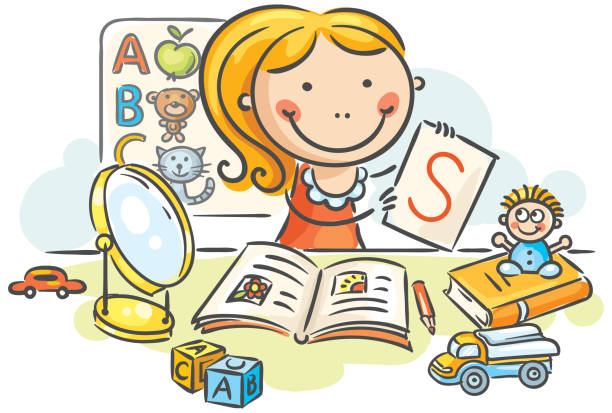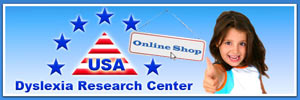8 Fun Exercises To Improve Speech And Vocabulary To Try At Home
Written by Lily Brooks

Anyone who has ever had a speech therapy session knows that it is an insightful and helpful experience. Speech therapists have spent years advising their patients about how to improve their speech, voice, and communication skills on an individual level. However, there are some techniques that can also be done at home between sessions with your therapist or independently. In this blog post, we will discuss 8 different techniques for improving your kid’s speech quality at home! Speech therapy may also be necessary in some cases of dyslexia if problems with articulation persist. The following fun exercises can be done to improve speech and vocabulary in any child regardless if professional intervention is required by a speech therapist.
1. Introduce a new word to your child every day
If your child is able to learn new words, then this technique can be helpful! Introducing a word every day forces them to think about the meaning of that word and how they say it. It also gives you an opportunity to point out similarities between different words (e.g., shoe and chew).
This exercise should not take more than one minute per day. You can use a word list as an easy way to find new words for introduction each day! Learning new words can help children to be more expressive and feel confident in their abilities to communicate!
2. Play games with your child that increase their vocabulary
Many games and activities will help your child to be more expressive! For example, you can play “I Spy” or Guess Who. Ask questions that require a lot of words (e.g., What is this? How many colors are there in the sky?)
Playing these types of games encourages children to use their vocabulary and gives them the opportunity to express themselves.
3. Encourage your child to read more often and in different genres, like magazines or comics
Reading books or magazines is great for children because it allows them to be exposed to new words and ideas. You can also encourage your child to read in different genres, like comics!
This will help make reading more fun and they may learn something new from the book that they wouldn’t have found in a typical novel.
4. Use puppets as a fun way for children to practice conversation skills
A puppet is a perfect way to engage children in conversation and it is easier for them to express themselves. Puppets are also really fun because parents can act out the part of the puppet too!
This will help your child feel more confident about speaking with others while getting lots of practice at communication. (Note: Puppets are for children that have speech delays and need to work on their language skills.)
5. Get kids involved in cooking so they can learn about healthy food choices and how to prepare them
Use cooking as a way to get your kids involved in healthy eating and making wise food choices.
Some ways you can do this are by having them read through cookbooks with recipes that appeal to their interests or letting them spend time looking at online recipe ideas on the internet. This will help give them information about what they should eat, and what they should avoid.
More importantly, it will let them explore the science of cooking so that when they grow up they’ll know how to cook for themselves or learn new recipes on their own!
6. Have kids act out stories from books or movies together
Have kids act out stories from books or movies together – one person should be the narrator while the others are characters in the story.
We’ll teach you how to have kids act out stories from books or movies together! One person should be the narrator while the others are characters in the story. For example, one child is a character and another is an obstacle in the way. The narrator should tell them what to say and how they’re feeling as their emotions change throughout the scene, while the other child takes on a different role like a best friend or bully, depending on what’s going in that part of the story.
7. Practice tongue twisters to improve their articulation
Kids should practice tongue twisters to improve articulation.
Here are some fun ones: “How much wood would a woodchuck chuck if the woodchuck could chuck wood?” and “What’s in the red box with hornets?” These will help your child improve articulation, and they’re a lot of fun to say.
8. Read books aloud for at least 5 minutes each day and let them draw or scribble something related to the reading material
Children should read books aloud with an adult, or one-on-one. This will help them improve their articulation and reading skills while also improving their oral language.
Additionally, children can draw something related to the book they are reading. Research has shown that this activity facilitates the development of drawing skills in early childhood as well as improves literacy and language skills. This technique is ideal for children with dyslexia because it helps them improve their reading skills while boosting vocabulary.
Nasal speech therapy activities should be done at home to help children with speech disorders.
The best way for parents and teachers to work on nasal speech therapy is by reading books aloud. Reading a story from the point of view of different characters can also help kids improve their articulation skills without even realizing it!
____________________________________________________________________
Why these techniques work: These speech therapy techniques are a great way to help improve articulation and reading skills in children, who may have trouble with their oral communication due to developmental delays or other health issues. They’re also easy to implement at home, making them an ideal choice for parents of young kids.
Speech therapy is a really great way for your child to learn more about themselves, what they want in life, and how they can go after those things.
But you don’t always need access to professional help from a therapist – there are many things that you can do at home with your child.
Children may be struggling in school because they cannot get their thoughts out when talking to others. This is a big reason why so many children have speech delays and need speech therapy help from professionals – but there are lots of ways for parents to work on these skills, too!







